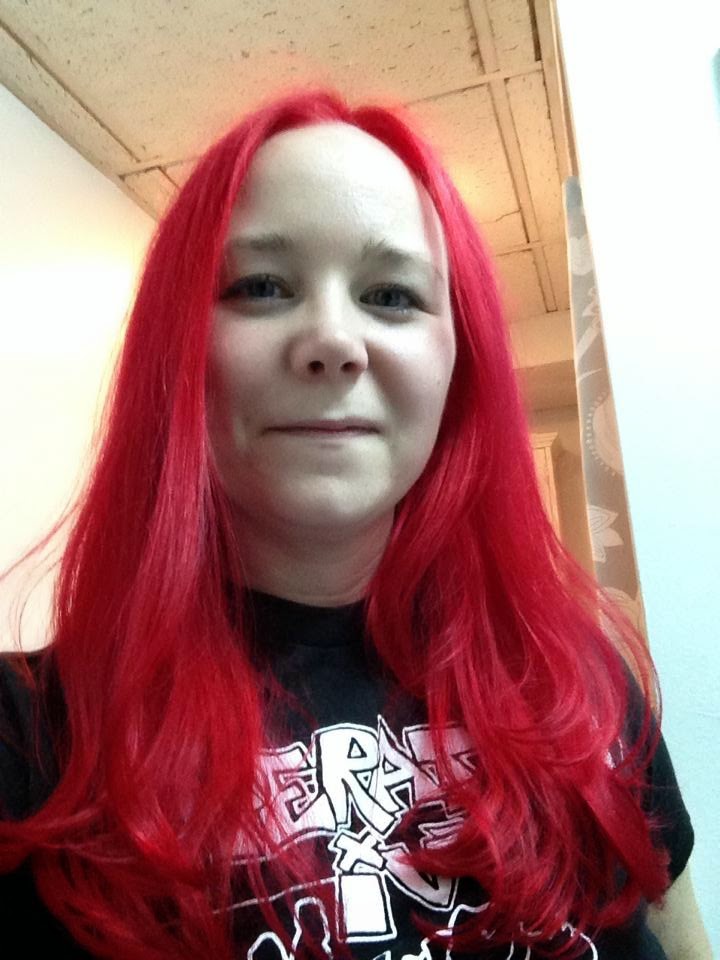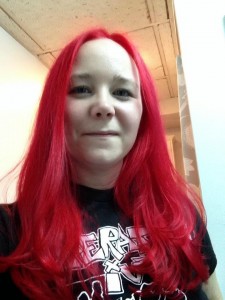Last fall, I took a Myers-Briggs workshop for work. This event determined our Myers-Briggs Type ahead of time and then used several exercises to explain how we perceive the world and make decisions, compared with how our coworkers did so. It classifies you are being one or the other in each of four pairs of preferences: extraversion vs introversion; sensing vs intuition; thinking vs feeling; judging vs perception.
On the morning of the training, the woman leading the course handed out thick reports to each of us. It revealed our results in explicit detail, and was unbelievably accurate. My result was one of the most uncommon types, ENFJ. I am extraverted, intuitive, feeling and judging.
The ENFJ person is sometimes called “The Giver” in Myers-Briggs literature. They address things primarily by how they feel about them. More than any other type, they have excellent interpersonal skills, usually knowing the right thing to say in most situations. They are empathetic, understanding and caring. They are very honest and forthright. They are especially good at developing talents in others, and do well in positions where they can lead and inspire. Their main interests are giving love, support, and encouraging others. They like to make things happen for people. They are extremely organized, planning out everything in their lives well ahead of time. They have a strong need for close relationships and will expend significant energy maintaining them. They are very loyal and trustworthy.
Because they are so good at handling people, ENFJs can be good manipulators, able to elicit desired reactions with ease. Their motives are not usually selfish, but they can easily get under the skin of other people. ENFJs tend to judge themselves harshly and to have deep, upsetting thoughts when alone, and to place others’ needs above their own. ENFJs have strong values and opinions, but are likely to let go of a strongly-held view if doing so would serve another person’s needs. ENFJs are not good at impersonal reasoning.
We broke up into groups of similar attribute (all extroverts, all intuitives, etc.) to demonstrate the differences in how we address situations. When we broke up in groups of thinking vs feeling, there were only two feeling people out of twenty. We were given a scenario in which we had to cut some people from a planned trip, and asked to explain how we would determine who would be cut. The thinking group had a very clear, logical decision tree. We, the feeling people, also had a decision tree, but it was clearly based on helping people the most. The thinking group wanted to send the most qualified people, who would best represent the company. We wanted to send the people who had never been, who would appreciate it the most, who might never get to go again.
The reaction we got to this was largely incredulous. Some people obviously felt this was a poor use of theoretical company money. This exercise was very upsetting to me. It upset me because my life often forces me to appeal heavily to this empathetic side of people. It upset me because so often in previous situations, I had been refused opportunities because I was sick, and it didn’t make sense to give responsibilities to someone who was sick. It upset me to realize that so few people thought that it was worth it to give a chance to someone because it would mean a lot to them.
This specific exercise was the subject of a lengthy discussion at the end of the class. One of my coworkers, a man I like and respect, was very curious as to why we felt the way we did. We went around the table discussing our feelings, me feeling unsettled the entire time. When it was my turn, I weighed my options and decided it was time to lay it all out on the table. There’s never a good time to “come out” as a sick kid, and it seemed like it was time.
“I have a rare, life-threatening blood disorder,” I said quietly. A couple of the people present knew, but I had started having new, more severe symptoms. I wouldn’t be able to hide it much longer. I felt the flush rising on my chest but there was no going back. “I know I don’t look like it, but I’m very sick.” I tried to choose my words carefully, both for clarity and for maximum effect. “I think that it is a privilege to give people opportunities based upon the fact that it will mean a lot to them. It costs you nothing to be nice to people. Good will means a lot to people who are struggling. And maybe for you, this is just a job. But for me, it’s probably the last job I’ll ever have. So I’ll remember kindnesses like that for the rest of my life.”
The instructor had mentioned earlier that people rarely change their Myers-Briggs type without a major life trauma. This wasn’t my first Myers-Briggs test. I had previously been ENFP, more spontaneous and adventure-seeking. Every chronically ill person reading this knows that those behaviors become memories once you are diagnosed.
“I used to be an ENFP person, but then I got sick. And now I have a plan and several back up plans for everything. Someone mentioned earlier that it’s impractical to be a judging person, because you can’t plan everything. I am prepared for everything, because I have to be. I have to plan everything because it is the only way to keep myself safe. If you don’t plan everything, probably nothing terrible will happen. If I don’t plan everything, it could kill me.” The room was silent. Some of my coworkers looked stricken. Some were crying. “So when we talk about this stuff and how we make decisions, remember that these things aren’t abstract. Every decision you make has the power to affect someone positively or negatively. It’s your choice. I just think it’s the better choice to always be positive, if you can be.”
This was the very first time I had decided to use the power of my story to positively impact the way someone viewed the world. It was both empowering and terrifying. Several of my coworkers came up to me afterward to hug me or tell me they were sorry I was sick. A lot of them asked about my disease and I told them. They cared about me and accepted me.
Being around someone who is chronically ill often brings out the best, or the worst, in people. It is rarely neutral. One of the privileges I have in life is to work with people who have shown me an incredible amount of compassion and understanding. “The other day I sent my friend flowers for no reason,” one of my friends told me a few weeks after the training. “I thought about your ENFJ speech.”
It made me smile. They matter so much, these little things.

